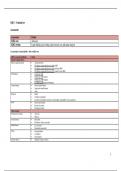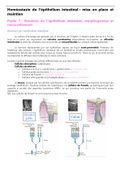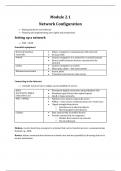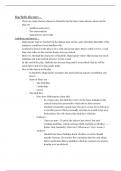Summary
Summary SQE2 Criminal Law Notes
SQE2 Criminal Law Core Topics The core principles of criminal liability relating to specified criminal offences. Advising clients, including vulnerable clients, about the procedure and processes at the police station. The procedures and processes involved in criminal litigation and more.
[Show more]










